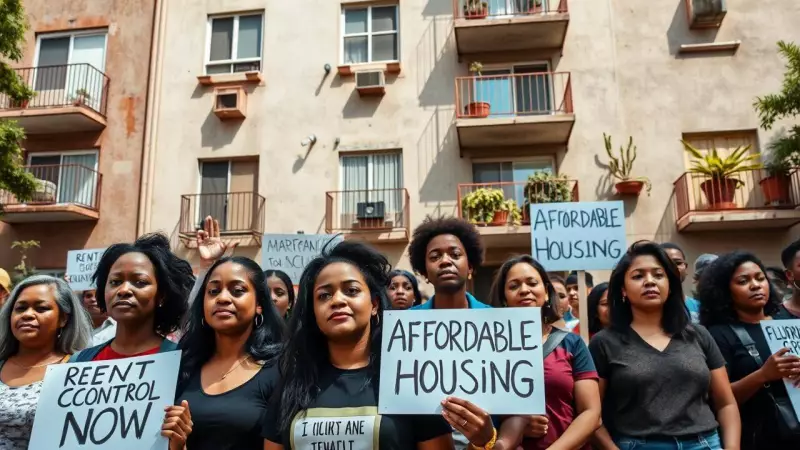
In a landmark decision that could reshape housing affordability in one of America's most expensive cities, the Los Angeles City Council has dramatically overhauled its rent control regulations for the first time in decades. The Wednesday vote slashes the permissible annual rent increases for the majority of the city's rental market, marking a significant victory for tenant advocates.
New Rent Control Limits Take Effect
The council approved the measure by a decisive 12-2 vote following an intense, nearly two-hour hearing that highlighted deep ideological divisions about housing policy. Under the new regulations, landlords of buildings covered by the city's rent stabilization laws—affecting approximately three-quarters of Los Angeles' rental market—will now be permitted to raise rents by only 1% to 4% annually, a substantial reduction from the previous allowance of 3% to 8%.
The specific percentage within this range will be tied to inflation, providing some flexibility while ensuring increases remain manageable for tenants. The decision, championed by city councilmember Nithya Raman, requires one additional vote to ratify specific language before becoming official law. Officials expect the new rules to take effect before many tenants face their next rent increase in February.
Divided Reactions from Stakeholders
Proponents celebrated the move as essential relief for struggling residents. "What we have before us right now is an opportunity to make L.A. more affordable," declared Councilmember Raman during a rousing press conference with tenant activists before the crucial vote. "Because when people can afford to stay in Los Angeles this entire city thrives."
Los Angeles Mayor Karen Bass endorsed the council's action, describing it as consistent with her broader focus on improving livability in the city. "We will help Angelenos afford their housing, prevent people from falling into homelessness and restrict skyrocketing rents," Bass affirmed in an official statement.
However, the rental industry expressed strong opposition, warning of negative consequences for housing supply and quality. Chris Gray, president of Moss & Company, a major Los Angeles property management firm, voiced grave concerns: "This vote will go down in history for our housing supply and our providers. We can't afford it." Landlords argued that reduced income would compromise property maintenance, force sales, and discourage new apartment development in a city already grappling with a severe housing shortage.
Broader Context of LA's Housing Crisis
This policy shift arrives amid escalating housing challenges in Los Angeles. According to the most recent official estimate, nearly 44,000 people are homeless in the city, while one in three tenants spend more than half their income on rent. The rent stabilization laws generally apply to units built before October 1978, covering approximately 651,000 apartments housing over 1.5 million Angelenos.
State legislation prevents the city from updating the 1978 cutoff date for rent-controlled properties. However, landlords of newer apartments must still abide by less stringent statewide regulations. Exemptions from these controls include single-family home rentals and apartments constructed within the last 15 years, except under special circumstances. Notably, when a tenant vacates a rent-stabilized unit, landlords face no restrictions on rent increases for the next occupant.
The COVID-19 pandemic created the conditions for this tenant-friendly policy shift. In March 2020, anticipating massive job losses, the city prohibited evictions for non-payment of rent and implemented a "rent freeze" in stabilized buildings that lasted nearly four years—far longer than in other major metropolitan areas. As the city dismantled these emergency protections, councilmembers replaced them with permanent regulations significantly stronger than the pre-pandemic rules.
Additional tenant protections now include allowing tenants to miss one month's rent before landlords can initiate eviction proceedings. Evictions are permitted only for specific lease breaches, owner move-ins, or other designated reasons. Furthermore, low-income renters receive taxpayer-funded legal representation in eviction court, substantially improving their position in housing disputes.





